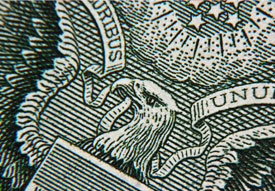Two Separate and Distinct Lists of Debts. Which Are Not Written Off in Bankruptcy
Most debts ARE written off in bankruptcy. But there are two very different sets of debts which aren’t. To understand bankruptcy it helps to understand the difference between these two.
 In our last blog we wrote about debts which are not discharged—written off in bankruptcy—IF AND ONLY IF a creditor objects by a strict deadline, AND persuades the bankruptcy judge that the debt should not be discharged. To do this the creditor has to show that the debtor acted in some specific bad way in relation to that debt. There’s a list of the specific bad ways in bankruptcy law.
In our last blog we wrote about debts which are not discharged—written off in bankruptcy—IF AND ONLY IF a creditor objects by a strict deadline, AND persuades the bankruptcy judge that the debt should not be discharged. To do this the creditor has to show that the debtor acted in some specific bad way in relation to that debt. There’s a list of the specific bad ways in bankruptcy law.
But in that blog we mentioned that there is ANOTHER set of debts that are not discharged EVEN WITHOUT the creditor raising an objection. The different way that these two sets of debts are treated can be confusing.
Some of our clients are concerned that a certain creditor or two will raise an objection. So they breathe a sigh of relief when the deadline for creditors to file a complaint at the bankruptcy court passes without hearing from any creditors. But that deadline—which is usually about three months after a bankruptcy is filed—only applies to the first set of debts—the kind which can be challenged because of a debtor’s bad behavior related to the debt. These include the debtor defrauding the creditor, abusing a trust relationship, embezzling or stealing, or injuring someone or their property intentionally and maliciously. It can also edge into behavior that might be considered more reckless than intentional, like bouncing checks and using a credit card when unable to pay on it.
But the second set of debts, the ones that aren’t discharged even if the creditor does not raise an objection, do not involve bad behavior by the debtor. Rather these kinds of debts are ones that Congress has decided just shouldn’t be able to be discharged in bankruptcy. So the creditor doesn’t need to complain or object. The debt is just simply not discharged, and the debtor continues to owe it after the bankruptcy is finished. These include the familiar ones that most people have heard of: child and spousal support, most student loans, and relatively recent income taxes.
This gets interesting because the rules about which debts are included in the second set of debts (the ones which aren’t discharged without a creditor’s objection) can get quite complicated. So sometimes it’s not perfectly clear whether a particular debt does or does not fit the rules laid out in the Bankruptcy Code. So it’s not clear whether or not that debt is discharged in bankruptcy. For example, whether or not a particular income tax is discharged can turn on half-dozen or more considerations (including how long since the tax was originally due, whether and when the tax return was actually filed, whether an extension was requested, whether the taxpayer asked for an offer in compromise on the debt, whether the IRS recorded a tax lien, and more!).
So a practical problem arises when the creditor thinks that the debt fits the rules for not being discharged, but the debtor thinks the debt does not. Since the creditor doesn’t need to raise any objection DURING the bankruptcy case, AFTER it is over it starts pursuing a debt that the debtor believes was discharged. That can get awkward, because it’s illegal for a creditor to pursue a debt that has been discharged in bankruptcy, but legal for it to pursue one that has not been discharged. By this time the bankruptcy case has been closed so you can’t just get a ruling from the bankruptcy judge about this.
To keep things in perspective, this problem doesn’t arise often because, as complicated as the rules are, the attorneys for both creditors and debtors are usually familiar with these rules. So surprises seldom happen. But in the more unusual nooks and crannies of these rules, sometimes they do. The prudent step—if there is any serious doubt about whether or not a debt will be discharged—is to ask the bankruptcy court for a determination about this WHILE the case is still active, so that there is no doubt either way.




